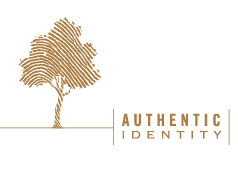By Tony Tiernan and David Rhoads
Many professional services firms want their brands to be perceived as innovative, relational, creative, trusted, etc. But "owning" one of those adjectives takes a lot more than simply asserting it in your marketing materials.
A brand is a mandate, not a mask: it should reflect the behavior of your people, not just your external communications. This is especially true in professional services, where brands are delivered in the interactions between professionals and their clients.
But there is a conundrum at the heart of the professional services brand. How do you honor the independence of your best professionals, while creating a client experience that is sufficiently consistent to grow a differentiated brand?
The answer lies in purposefully aligning the intrinsic and extrinsic motivations of your people, using two key tools: identity and rewards. Identity means the values, beliefs and promises by which your firm lives - the source of your ability to create unique value for your clients. Rewards can mean financial rewards (e.g., salary, bonus and ownership) or non-financial rewards (e.g., career progression).
In our work with professional services firms, we frequently see signs of misalignment between what the brand promises, what business processes encourage, and what the reward system reinforces.
A few of the high-level symptoms include:
▪ Senior team members tell very different stories about what the organization is or does, and why it is valuably different
▪ Investment in thought leadership is episodic, unfocused and disconnected from the marketing process and rewards
▪ Clients typically buy only one or two of the services that the firm offers
▪ The compensation system discourages partners & principals from introducing other partners & principals from different practices or geographies into their client relationships
▪ External communications are not credible to your internal team. The firm wants to be seen as innovative, as relational or as trusted advisors, but the promotion and reward criteria focus only on sales performance
▪ The firm wants senior partners to mentor junior partners and to transition major client relationships to them, but “sharing” clients will reduce the senior partners’ billable hours and managed revenue, two key drivers of the annual bonus
So how should you think about using your reward system and business processes to align your people’s behaviors with the promise that your firm’s brand is making? It’s a big topic, and we plan to cover it in much more depth in a forthcoming paper. However, let us take one example to illustrate the power of alignment.
Promise
Let’s take a promise that many professional services brands make: the promise of relationship. It’s expressed in many forms: “we partner with our clients”; “we are trusted advisors”; “with work with your business, not on it”; “your success is our success”; “we identify completely with your objectives”; “we stand beside you and we’re with you for the long haul”, etc.
Process
If the firm was serious about that promise, here are some things we might expect to see embedded in its key business processes:
▪ Training for all professionals in relationship development and listening skills
▪ A requirement that all partners to learn their clients’ strategic objectives and agendas, beyond the immediate project
▪ A requirement that two or more partners (from different practices) attend every new client marketing meeting
▪ A mandate requiring the introduction of partners from multiple practices to each client
▪ Formal and informal client feedback processes
▪ A requirement to involve clients in the development of new insights
Remuneration and Rewards
Equally, if the firm was serious about its promise to be relational we should see some or all of the following in its pay and bonus systems:
▪ Salary and bonus opportunity linked to the nature and quality of client relationships
▪ A portion of an aspiring partner’s bonus linked to new sales generated from client referrals
▪ A multiplier in the revenue crediting system applied to projects sold in other practices.
Professional services firms that succeed at developing strong, differentiated and enduring brands are very clear about who they are, what makes them valuably different to their clients and how that translates into behavior. They also structure their talent acquisition/promotion criteria and reward systems to align with and encourage that behavior.
Is your firm aligned around its brand promise? What gets in the way? What works? Please leave your comments below - we’d love to hear from you.
________________________________________________________________
David Rhoads is Managing Director of ThreePoint Consulting, which helps organizations achieve key strategic goals and reinforce change by aligning people, performance, and pay. You can reach David at D.Rhoads@threepoint-consulting.com
Tony Tiernan is CEO of Authentic Identity Inc, which helps professional services firms build strong, differentiated brands with which to attract and keep the right clients and the right talent. You can reach Tony at Tony.Tiernan@AuthenticIdentity.com


